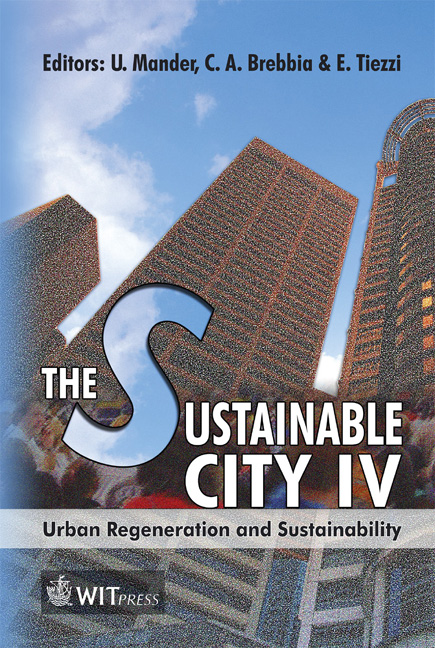On The Way To Gigapolises: Can Global Urban Development Become Sustainable?
Price
Free (open access)
Transaction
Volume
93
Pages
10
Published
2006
Size
286 kb
Paper DOI
10.2495/SC060161
Copyright
WIT Press
Author(s)
M. Keiner & W. A. Schmid
Abstract
Urban growth in developing countries is a challenge to the management capabilities of national and local authorities. Problems of steering the urban development occur not only in ‘mega-cities’ but also in smaller but rapidly growing cities. Will the big cities continue to grow, will they become ungovernable gigapolises? Sustainable urban development is a must and early action is needed. In research, the issue of hyper-growing sub-mega cities in the developing world has not yet been analyzed sufficiently. Those cities can be characterized by rapid population growth, an economy dependent on the informal sector, widespread poverty, widespread informal housing, basic environment and public health problems, and governance problems. These problems are similar to those of the mega-cities; yet offer the opportunity for earlier intervention. Meeting the needs for the city’s inhabitants of today and to improve the quality-of-life of future generations is of major concern. The prerequisites for sustainable urban development are ‘good governance’, i.e. the democratization of planning decisions by enhancing participation of individuals, households, communities, voluntary associations and NGOs; decentralization; networking of cities with similar challenges regarding sustainability; the elaboration of sustainability oriented strategies and visions; harmonizing planning instruments and regulations; using indicator based monitoring to control and to enforce sustainability related planning measures Keywords: urbanization, mega-cities, gigapolis, sustainability, good governance.
Keywords
urbanization, mega-cities, gigapolis, sustainability, good governance.





